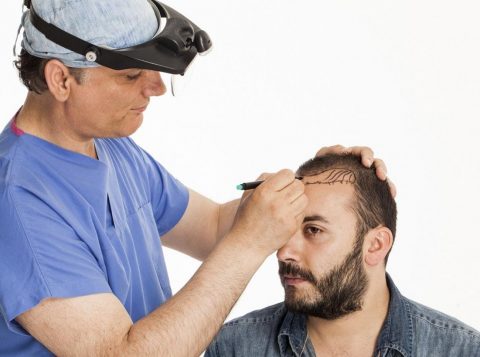
Am I a Good Candidate for a Hair Tr
Hair loss can be a distressing experience, affecting self-confidence and overall appearance. Fortunately, hair transplant in Islamabad have emerged as an effective solution for restoring hair permanently. If you’re considering a hair transplant in Islamabad, you might be wondering whether you are a suitable candidate for the procedure. In this blog, we will discuss the key factors that determine your eligibility for a hair transplant.
Understanding Hair Transplantation
A hair transplant is a surgical procedure that involves extracting hair follicles from a donor area (usually the back or sides of the head) and implanting them into balding or thinning areas. The two most common techniques are:
- Follicular Unit Extraction (FUE): Individual hair follicles are extracted and implanted one by one.
- Follicular Unit Transplantation (FUT): A strip of hair-bearing skin is removed, and follicles are extracted and transplanted.
While both techniques have proven successful, their effectiveness depends on various individual factors.
Who is a Good Candidate for a Hair Transplant?
1. Sufficient Donor Hair Availability
One of the most critical factors in determining your eligibility for a hair transplant is the availability of sufficient donor hair. The back and sides of the scalp are typically used as donor areas because they are genetically resistant to hair loss. If you have a good amount of healthy, thick hair in these regions, you are more likely to be a suitable candidate.
2. Type and Extent of Hair Loss
Hair transplants are most effective for individuals with permanent hair loss caused by conditions like male pattern baldness (androgenetic alopecia) or female pattern hair loss. If your hair loss is due to temporary factors such as stress, hormonal imbalances, or medical treatments, other non-surgical treatments may be more suitable.
Candidates with advanced baldness (Norwood scale 6 or 7) may require multiple sessions or might not achieve the desired density due to limited donor hair availability.
3. Age and Hair Loss Stability
Age plays an important role in determining whether you are a good candidate. While there is no strict age limit, most surgeons recommend waiting until hair loss stabilizes, typically after the age of 25-30. Younger individuals may continue to lose hair after a transplant, leading to unnatural results.
4. General Health Condition
A hair transplant is a surgical procedure, so being in good overall health is essential. Conditions such as diabetes, heart disease, or blood clotting disorders may affect healing and the success of the transplant. It is important to discuss your medical history with your surgeon before undergoing the procedure.
5. Realistic Expectations
A successful hair transplant does not guarantee a full head of thick hair overnight. The results take time, and patients must understand that the density and coverage depend on their donor hair availability. Having realistic expectations will ensure satisfaction with the outcome.
6. Scalp Condition and Skin Health
A healthy scalp is essential for a successful transplant. If you suffer from conditions like seborrheic dermatitis, psoriasis, or scalp infections, you may need treatment before considering surgery. Additionally, a tight scalp may limit the ability to extract or implant grafts effectively.
7. Previous Hair Transplant Surgery
If you have already undergone a hair transplant and are looking for a second procedure, your eligibility will depend on the availability of additional donor hair and the quality of previous results. Some patients may benefit from scar revision or additional grafting to improve density.
Who is Not a Good Candidate for a Hair Transplant?
While many individuals are good candidates, some may not be suitable for a hair transplant. You may not be eligible if:
- You have severe hair loss with inadequate donor hair.
- Your hair loss is caused by underlying medical conditions (e.g., alopecia areata or lupus).
- You have unrealistic expectations about the procedure.
- You suffer from poor scalp health or chronic skin conditions that affect healing.
- You are too young, and your hair loss is still progressing rapidly.
Alternatives to Hair Transplantation
If you are not a suitable candidate for a hair transplant, there are other options available:
- Medications: Finasteride and Minoxidil can slow down hair loss and promote regrowth.
- Platelet-Rich Plasma (PRP) Therapy: Injections of your own plasma to stimulate hair growth.
- Scalp Micropigmentation: A cosmetic tattooing procedure to create the illusion of fuller hair.
- Hairpieces or Wigs: High-quality hair systems for non-surgical coverage.
Final Thoughts
A hair transplant in Islamabad can be a life-changing procedure, but it is essential to determine whether you are a suitable candidate before undergoing surgery. Consulting with an experienced hair transplant surgeon will help assess your scalp condition, hair loss pattern, and overall eligibility. By understanding the factors that contribute to a successful hair transplant, you can make an informed decision and achieve the best possible results.
If you are considering a hair transplant, schedule a consultation with a reputable clinic in Islamabad to discuss your options. The right approach will help you regain confidence and restore your hair naturally.







